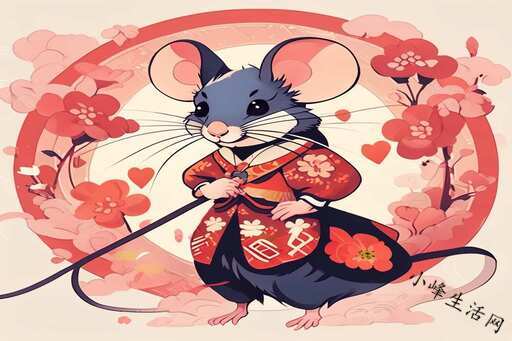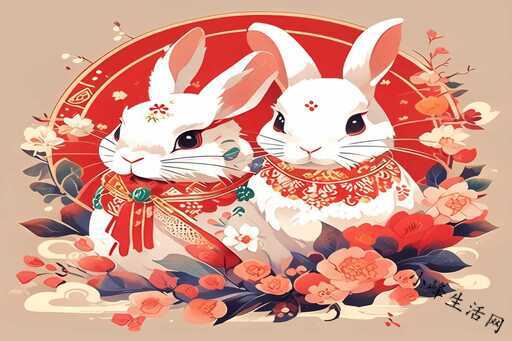2025年7月安门吉日
2024年7月安门吉日 2024年7月,一年一度的安门吉日即将到来。这是一个重要的日子,不仅是因为它标志着一个新的开始,更是因为...
扫一扫用手机浏览
Is it important to choose an auspicious day for a wedding?
Choosing an auspicious day for a wedding is a tradition in many cultures around the world. In Chinese culture, this practice is known as "拜堂吉日" (bài táng jí rì), which literally translates to "worshiping the hall on an auspicious day." The belief is that by selecting a propitious date for the wedding ceremony, the couple can ensure good luck, happiness, and prosperity in their marriage. But is it really important to choose an auspicious day for a wedding? Let's explore this tradition from a linguistic and cultural perspective.

The significance of "拜堂吉日" in Chinese culture
In Chinese culture, the concept of "拜堂吉日" is deeply rooted in the belief in cosmic harmony and the influence of celestial bodies on human affairs. The Chinese almanac, known as the "黄历" (huáng lì) or "通书" (tōng shū), is consulted to determine auspicious dates for important events such as weddings, moving into a new home, and opening a business. The almanac takes into account the positions of the stars, the five elements (wood, fire, earth, metal, and water), and the Chinese zodiac to calculate the most favorable dates for these activities.
When it comes to weddings, the chosen date is believed to have a profound impact on the couple's future happiness and well-being. The specific requirements for an auspicious wedding date can vary depending on the individuals' Chinese zodiac signs, the compatibility of the couple's birthdates, and the astrological significance of the year, month, day, and hour of the wedding.
The linguistic significance of "拜堂吉日"
From a linguistic perspective, the phrase "拜堂吉日" reflects the cultural values and beliefs associated with marriage in Chinese society. The character "拜" (bài) means to worship or pay respects, indicating the solemnity and reverence with which the wedding ceremony is regarded. "堂" (táng) refers to the main hall or central room of a traditional Chinese house, symbolizing the union of the bride and groom and their families. "吉日" (jí rì) means an auspicious day, emphasizing the desire for good fortune and blessings on the wedding day.

The use of this phrase in the context of wedding planning underscores the importance of tradition, harmony, and the pursuit of happiness in marriage. It also reflects the belief that the timing of significant life events can have a lasting impact on one's future prospects and relationships.
Global perspectives on auspicious wedding dates
While the practice of choosing an auspicious wedding date is particularly prominent in Chinese culture, similar customs exist in other parts of the world. In India, for example, the selection of a propitious wedding date is guided by the principles of astrology and the alignment of celestial bodies. Couples consult astrologers or traditional calendars to identify favorable dates and times for their nuptials, taking into account factors such as the positions of the planets, the lunar calendar, and the astrological compatibility of the couple.
In Western cultures, the significance of auspicious wedding dates is often associated with superstitions and folklore. Certain dates, such as Friday the 13th or the Ides of March, are considered unlucky for weddings, while other dates, such as Valentine's Day or New Year's Eve, are seen as particularly romantic and auspicious for tying the knot.
Regardless of the specific cultural or religious traditions, the practice of choosing an auspicious wedding date reflects the universal human desire for love, happiness, and prosperity in marriage. It also highlights the enduring influence of ancient beliefs and customs on contemporary rites of passage and social rituals.
The modern relevance of "拜堂吉日"
In today's fast-paced and interconnected world, some may question the relevance of selecting an auspicious wedding date based on traditional beliefs and astrological considerations. However, for many individuals and families, the practice of "拜堂吉日" continues to hold deep cultural and symbolic significance.
For some, the process of choosing an auspicious wedding date is a way of honoring and preserving their cultural heritage and family traditions. It can also serve as a source of comfort and reassurance during a time of significant life changes and transitions. In addition, the act of consulting the almanac and engaging in discussions about auspicious dates can bring families and communities together, fostering a sense of unity and shared purpose.
Furthermore, the practice of "拜堂吉日" can be seen as a form of mindfulness and intentionality in the planning of a wedding. By carefully considering the astrological and cultural significance of the chosen date, couples can cultivate a sense of mindfulness and awareness as they embark on this important milestone in their lives.
Conclusion
In conclusion, the tradition of choosing an auspicious day for a wedding, as exemplified by the Chinese practice of "拜堂吉日," reflects the enduring influence of cultural beliefs, astrological considerations, and the universal human desire for love and happiness. While the significance of auspicious wedding dates may vary across different cultures and regions, the underlying aspiration for a harmonious and prosperous union remains a common thread that unites people around the world.
Whether one chooses to adhere to traditional customs or to approach wedding planning from a more contemporary perspective, the practice of "拜堂吉日" serves as a reminder of the rich tapestry of human traditions and the enduring power of love and commitment in shaping our lives.